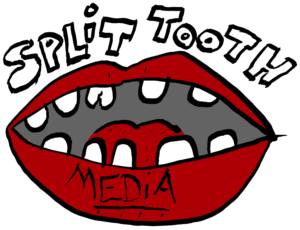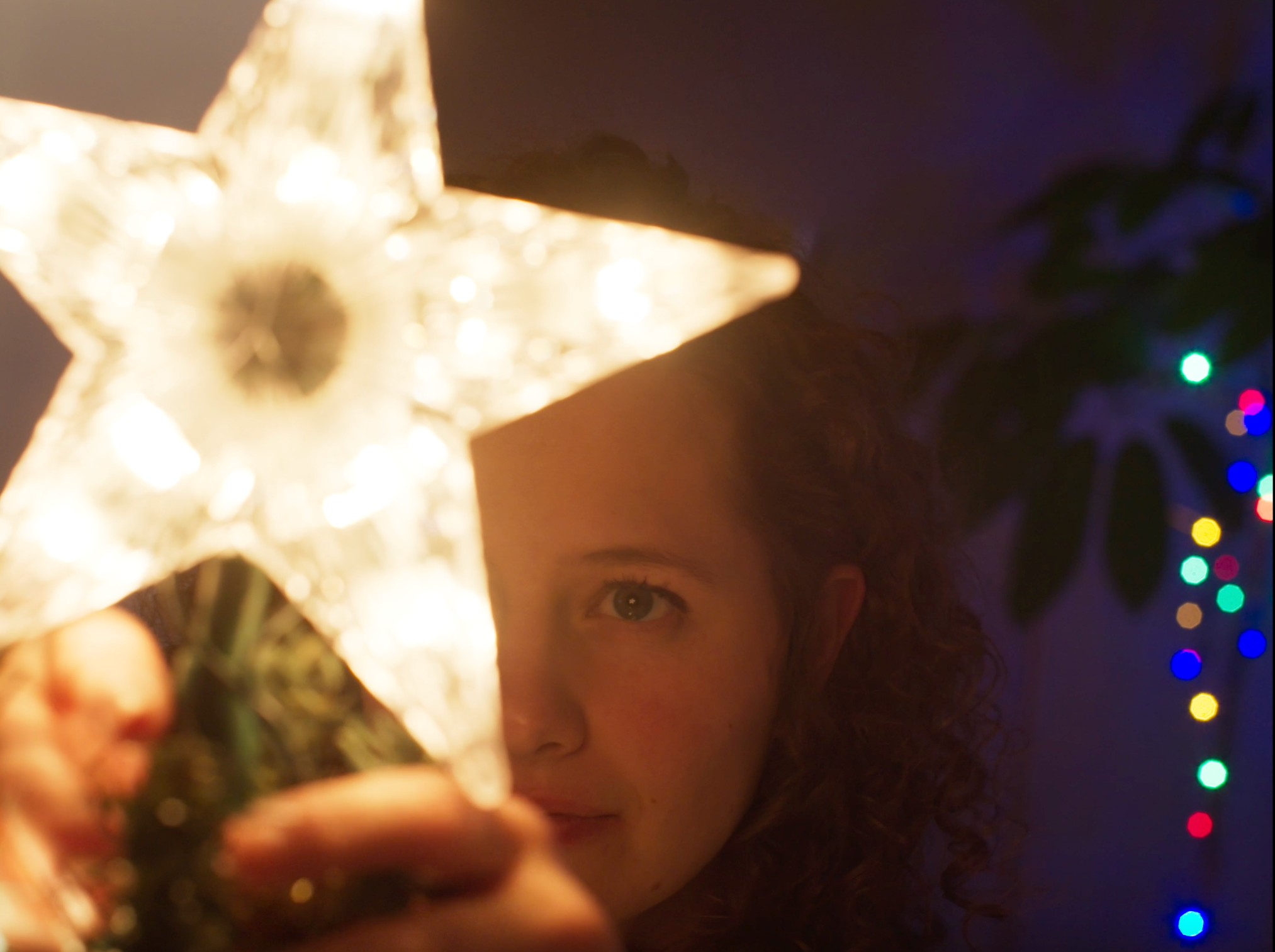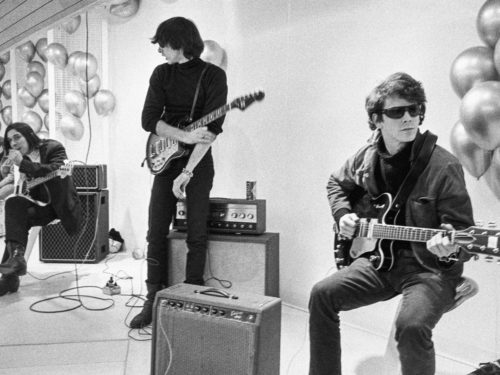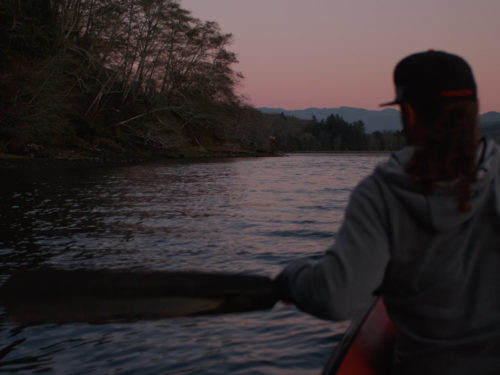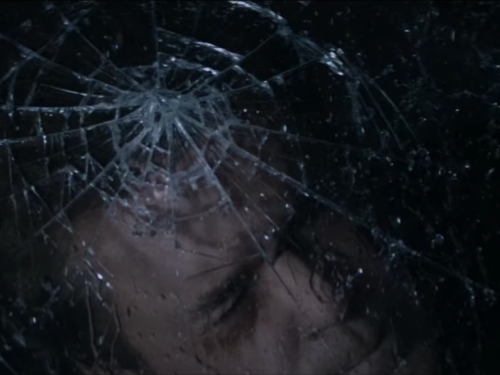Just in time for the holidays, Thordarson’s directorial debut is available to watch on Vimeo
The mere mention of Christmas evokes imagery of trees, shining lights, snowfall, and hearing 17 different versions of the same songs on a loop. However, Christmas also brings its own melancholy, like the oft-replaced line of Judy Garland’s original “Have Yourself A Merry Little Christmas” in Meet Me In St. Louis. For some, Christmas is a season to “muddle through,” as Garland sings. In her directorial debut, Paper Planes, Alyssa Thordarson and co-director Michael Glover Smith weave a compelling story of the joys and struggles of the season and the surprises we might find that only seem to come at this time of year.
The film follows Rachel (Shaina Schrooten), who struggles with agoraphobia that confines her to her apartment, and the uninhibited Jo (Thordarson), who is renting the Airbnb across the hall. As they exchange messages through paper planes, the two find more within themselves and each other than they expected. Paper Planes is a new Christmas classic for the modern era.
Split Tooth is proud to present the online premiere of Paper Planes, just in time for the holiday viewing. You can watch the film below and read an interview with co-director, writer, and star Thordarson about Paper Planes‘ production.
Watch Paper Planes on Vimeo
Breanna McCann: From the first moment we see Rachel and Jo in Paper Planes, they felt like people I had known for years. How did you go about writing characters that are both so unique but feel so familiar?
Alyssa Thordarson: I never really have a good answer for these questions because I write so fast that there isn’t necessarily a lot of deliberate thought that happens. You hear a lot of writers talk about their problem being that they have too many ideas. My problem is the opposite: I never have any ideas, and then when I have one, it’s very pressing and very immediate, so it has to come out instantly. [Paper Planes] started as a writing exercise. I was trying to write a ’90s-style thriller, you know, the genre where Michael Douglas is constantly ruining his life because of a hot woman; that’s what I was trying to write. I didn’t really have the full story, and I was blocked. The only thing I knew was that I wanted to write that kind of thing, which isn’t a good way to write. So it was December, and someone said that to get out of writer’s block what helps them is to write the complete opposite of whatever you’re trying to do. So I was like, great, the opposite — that’s a Christmas rom-com. Let’s go! It was just supposed to be an exercise. But Michael [Glover Smith] and I had known each other, and I made a joke about ‘cranking out screenplays,’ and he was like, ‘Let me read it.’ And you can’t un-kick the ball down the hill once you’ve kicked it.
When we started seriously talking about making it, we knew we wanted Shaina Schrooten because we knew we wanted Rachel to be warm and have a lot of depth to her. Shaina and I have the same agent, so I had seen her work, and she’s also just a really nice person. She does a lot of horror, actually, which I think also worked for the same reasons. I think that was the most thought that went into it. It was always important to us that the mental illness aspect was a part of her character but not her defining characteristic necessarily. It was also important to show that you don’t have to be ‘fixed’ to be worthy of love or connection, and that love and connection can’t fix your mental illness. Part of me was a little cynical about the Jo character [played by Thordarson]. I don’t think that’s a fantasy character — Wouldn’t it be nice if you could just meet somebody who didn’t have a problem with your problems or found the horrible things about you kind of quirky and interesting? — because I think that does happen for people.
That’s absolutely something that rings true in the movie. The relationship feels very natural. What kind of atmosphere do you try to foster on set?
That’s such a big compliment because anyone who’s ever made a film knows it’s the hardest possible thing you could ever do. Michael and I both like to work really fast, and there isn’t enough time to doubt ourselves. As the director, you’re the person who has to solve every problem and you’re the person everybody on your crew looks to. What I love about working with Michael is that he has no ego whatsoever. He is really laid back, and he will do whatever is in service of the story. Obviously, we are working on a really tight budget, so we can’t necessarily pay people well or even close to what they’re worth, but what we can offer really talented, working, busy professionals is a quick shoot. We shot Paper Planes in 12 hours and then Michael, our DP Pouya Shahbazi, and I went and did an hour of pickups the next day of Jo on the train. Most people will work for peanuts if you can promise and deliver a quick shoot, an on-time wrap, and fun on set because everybody’s in it for the same reasons. We do need to make money but we also want to make things that connect with people. The resources can be slim so you just have to make sure that what you’re offering is proportionate to what you’re asking and be very gracious. You have to know that everyone there is doing you a favor. All of those people with really technical skills that you don’t necessarily have can work anywhere they want.
I started as an actor, and I’ve been on plenty of indie projects or low-budget projects, or stage readings, or things where the creator is convinced they’re God’s gift to the arts and they’re so stringent about what they want things to look like.
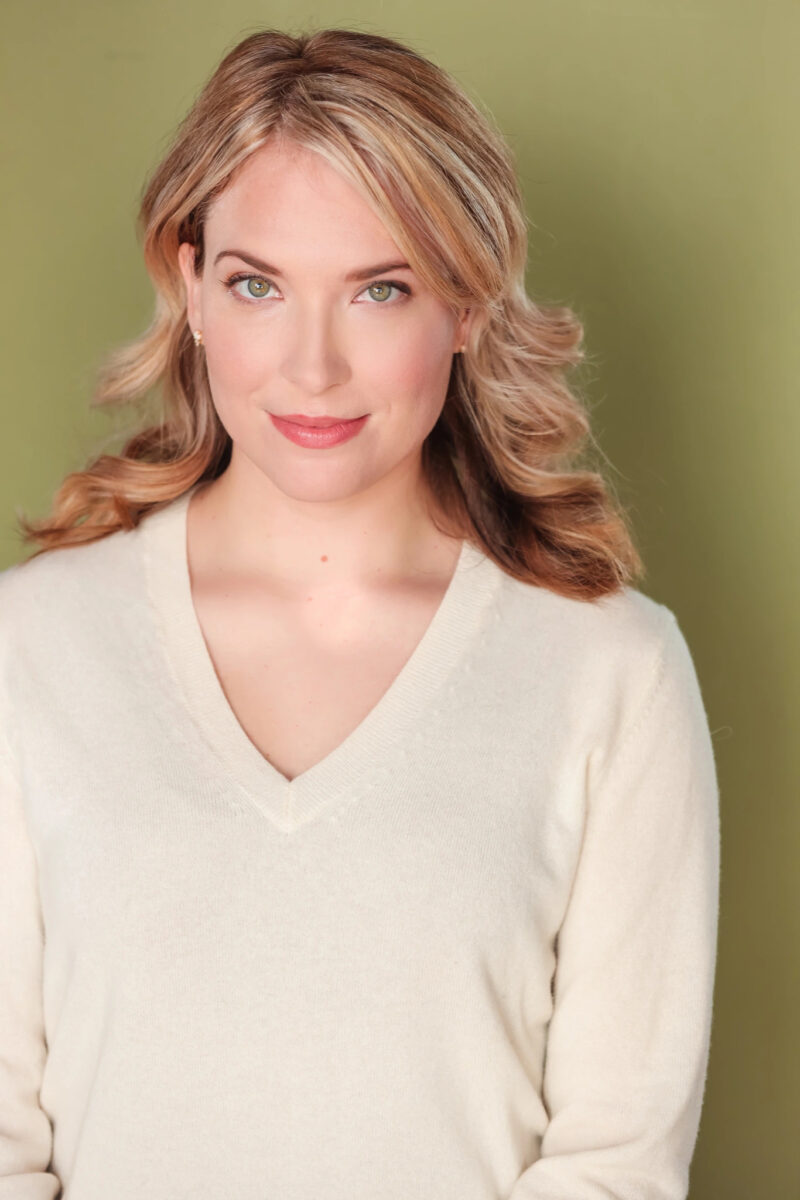
In Paper Planes, using letters to communicate back and forth, in the form of paper planes, is so unique and maybe my favorite choice you made in telling this story. In the age of dating apps and cryptic direct messages, using letters felt refreshingly unique and almost whimsical. Where did the idea to use letters come from?
I don’t remember specifically. It’s like that situation where you need to get in touch with your neighbors, but you don’t have their number. I have a restaurant day job and I work really late hours, so the only way I could tell my neighbor something like, ‘Hey, I think your cat got out’ would be to leave a note. That sort of snowballed into she can’t leave her apartment, she desperately wants to communicate but didn’t get a phone number, so how do you do that? Once that sort of cute, simple thing happened, the rest of it kind of fell into place because I think the most human element of any story is the overwhelming need to communicate with people and to be understood.
Most of the action takes place in Rachel’s apartment and in a hallway. What challenges or surprises would you say came with setting Paper Planes within such a confined space?
Actually, we saw that kind of as a gift because the more locations you have, the more expensive your movie is and the longer it takes to shoot. Whenever I write a script, I’m not writing with financial limitations necessarily, but I am thinking about how I can tell this story without interrupting it as much as possible practically. After (A Love Story), which I wrote and Clare Cooney directed, was shot in two days, but we had two company moves on each day, and that’s hours of your time. So shooting in one location helped us. It just gave us more of an opportunity to spend time with the characters rather than spending time with the technical elements of lighting and camera, and setting up, and moving. So, especially when acting, we didn’t have to let go of the characters as often as you normally do on a set, and that was really lovely.
I also think that Rachel’s agoraphobia is very relatable to people. Maybe not everyone has it to that level, but particularly after Covid shutdowns, that isolation and that kind of, ‘Am I going to die if I go to the grocery store?’ paranoia, I think all of that made her particular issue something that people had firsthand experience with. It was something people had emotional access to. So we didn’t have to spend a lot of time setting up or explaining it, which I also think was helpful. And then giving her just that one space, [her apartment,] and thinking how can I use it to tell the audience what kind of person she is, it’s more liberating in a way than if you constantly have to be moving locations and re-discovering who that person is in every space.
As you mentioned, seeing Rachel’s apartment and having that describe her, one of the key traits is all the Christmas decorations. How did you settle on telling this story at Christmas time?
I guess you could set it any other time but I particularly wanted it to be the holidays because people have a lot of emotions around them. I never want to tell an audience how to feel, but I think the greatest trick of storytelling, particularly in movies, is you can imply something and the audience will bring themselves to it. Really nothing I can write is ever going to be as powerful as what an audience brings of themselves and thinks about when they see something in a film. So I try really hard not to tell people what to think or what to feel, but definitely the social expectation [during the holidays] to be around people and needing to be around the people who love you, in particular, to be celebratory and to go out… there’s a lot of pressure and I think quite a few people do end up feeling isolated and alone because they aren’t fulfilling the social expectations, or maybe even their own expectations. And also the anxiety of the year being almost over and the forced reflection of, ‘What did I accomplish this year? Was it nothing?’ And maybe the further anxiety or self-loathing, even, that comes with that. So I think Christmas was particularly important to set the emotional tone. But we deliberately did not use any Christmas music in the soundtrack, because I also think that can be a little emotionally manipulative if I have her looking out the window and a really mournful “White Christmas” starts playing — that would be, in a sense, memory-hacking the audience into feeling something, which we didn’t need to do. We had Shaina’s beautiful, wonderful, expressive face to do it for us. And also, Christmas music is very expensive to license.
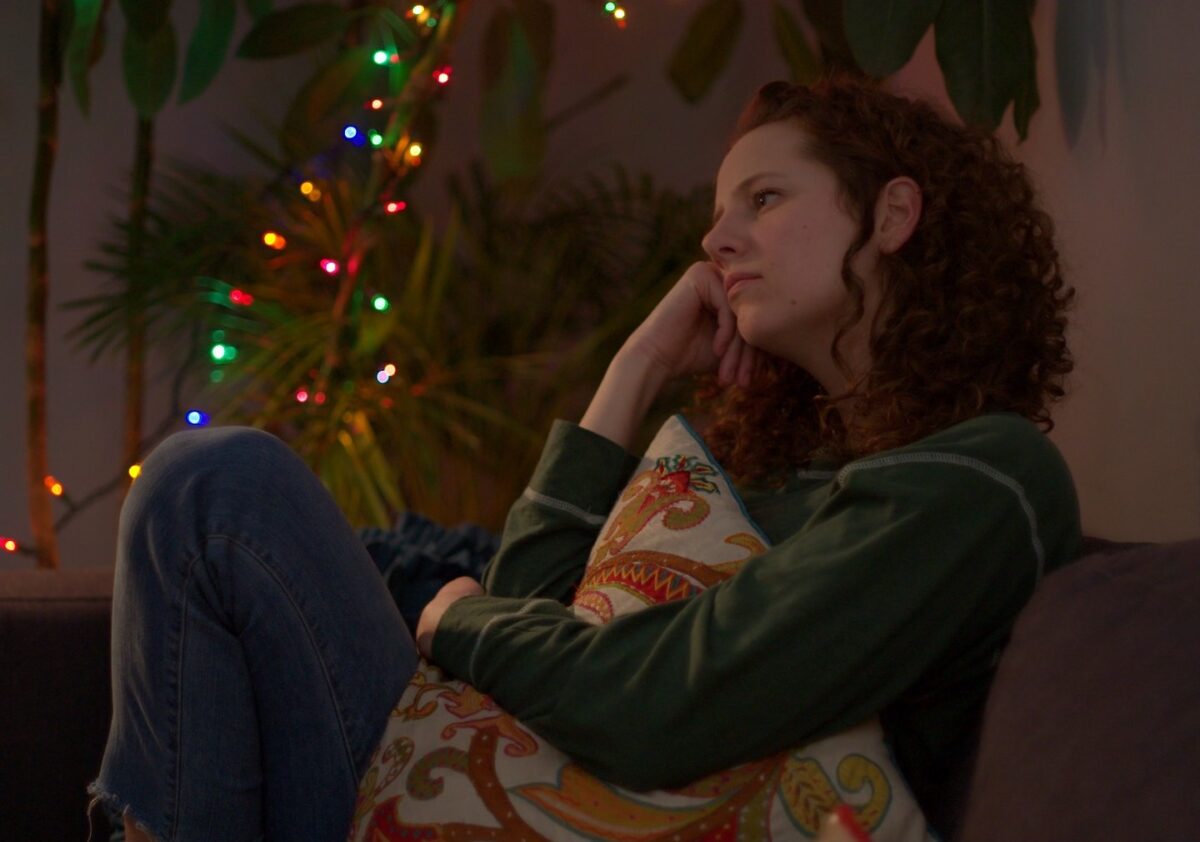
For some people, Christmas is really joyous, and for others, as you mention, it may be really difficult and not something they look forward to. How do you feel about Christmas and the time of the year?
I mean, it’s probably my favorite time for all of the reasons that I already mentioned. You get to see people who maybe you haven’t seen since the last holiday, you get to spend time with your family, and I happen to really love my family, which is not something that everybody has. I like to cook and I like the idea of sort of settling in for the winter and having everything be cozy. I’m kind of a sucker for it. One of the things that Michael and I bonded over when making this was loving Christmas films, for all of those reasons. The nostalgia, the romance, the element of maybe even the supernatural in a way that is joyous. I think it’s really rich, creative ground. There’s so much material and you can take it in so many different directions.
What is your favorite Christmas film, especially if you and Michael bonded over your love of them?
That’s hard. Michael and I both talked about Love Actually a lot, which I always think is fun. You’ve got the Emma Thompson storyline that is brutal, and very real, and very heartbreaking, and then you’ve got the almost fantasy sequence with the guy who goes to Wisconsin and it’s just a really fun blend of human elements. I always love It’s A Wonderful Life but — and in Paper Planes we reference this — I really only ever watch it once a year, and it’s near the actual holiday because it’s such a gut punch. Probably those. I love The Family Stone… Yeah, I’m gonna stop before I name all of them, but I’ll go with those.
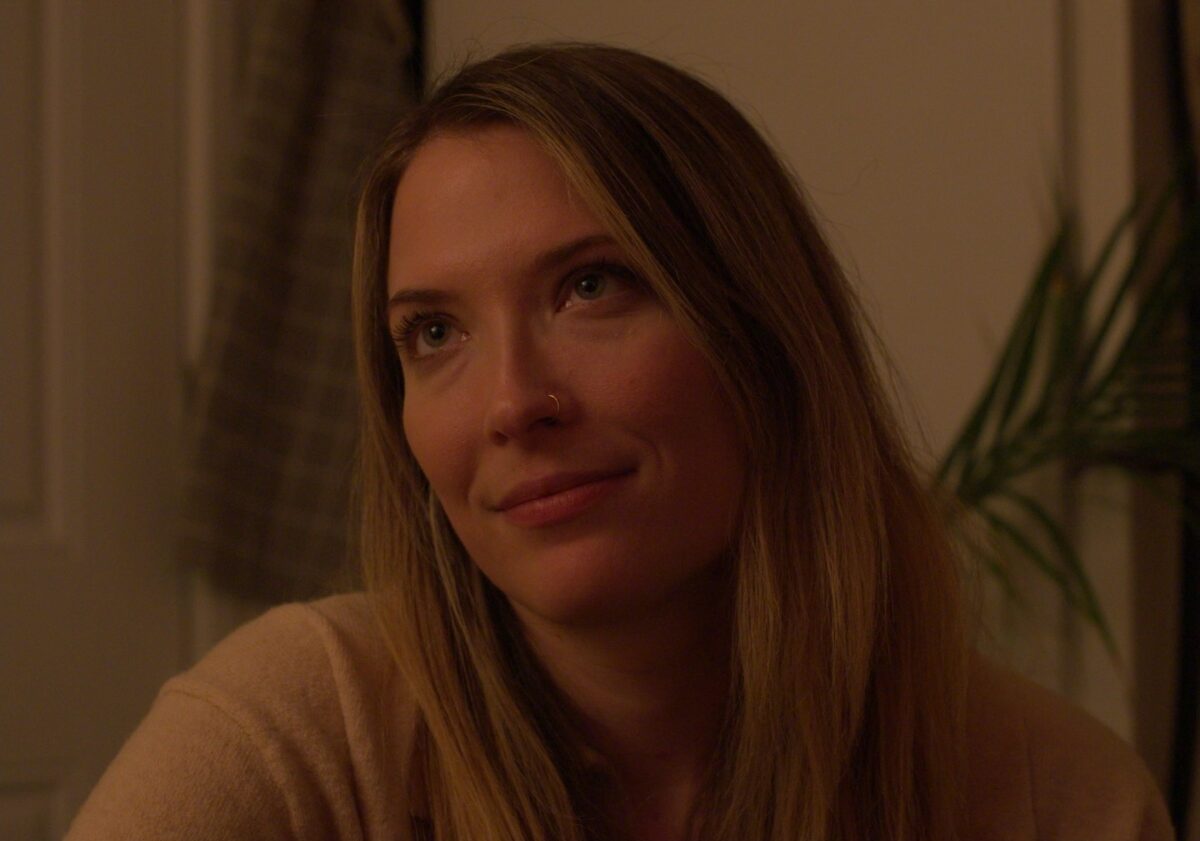
That’s fair. I am a big Love Actually fan, so I can get behind that. What do you see Paper Planes adding to this really rich canon of Christmas films?
I don’t know if I have the hubris to imagine it would be adding anything! For the sake of the exercise, it ultimately is about the triumph of human connection over any possible obstacle, and I think that’s what gravitates people toward holiday films in the first place. There’s an emotional territory that, without necessarily trying to be overly sentimental, I think it’s nice to be reminded that that kind of connection, and maybe romance, and somebody seeing you and being excited by that is possible. And I think that’s what the genre brings, and I hope that’s what Paper Planes brings, too.
After (A Love Story) was your screenwriting debut and Paper Planes was your directorial debut. Knowing your roots as an actor, what inspired you to move behind the camera and what are some challenges or surprises that have come with that shift?
Well, when you’re an actor you can’t do it by yourself. You’re just waiting for your phone or your inbox to light up, for someone to say you have an audition. And then after that it’s, ‘Will I get this job?’ which, if you’re really good, you maybe get one out of every 50 auditions. So it can be, creatively, a very lonely pursuit, which is why a lot of actors spend all of their time in class. I’ve taken a lot of classes and I just kind of thought there has to be a better use of my time and money than to keep doing scenes from Classic American Theatre with every other actor in town I know. I think I’ve always had it in my head that I wanted to make movies at some point, and then in the pandemic shutdowns it kind of became a do-or-die thing. If you have unlimited time and you’re not going to do it now, you’re never going to do it.
I wrote a script and I sent it to Clare Cooney who ended up directing After, and she really liked it, which surprised me. It very quickly snowballed into, ‘We’re going to make this, and we’re going to ask our friends for help.’ We got Glenn Stanton who is a good friend of mine and now probably one of my closest friends. He was literally in the woods filming The Walking Dead when I sent him this script and was like, ‘Do you want to do a low budget short film? Probably not, but maybe — maybe you do.’ So it became a way to kind of have autonomy over, if not at first, my career, then definitely some kind of creative outlet. And then once you start doing it, you realize that you can do it and everything you thought was going to be really impossible is hard but doable.
What I learned from that experience and then going into Paper Planes was that writing, acting, directing, and producing are all different limbs of the same animal. It has been really rewarding to not have to wait for someone to give me permission to do it. I have just as much fun sitting in my apartment and writing a script as I do on a set with other actors. It has also made a lot of my auditions better because the anxiety of ‘is this the thing I’m gonna book?’ is kind of gone. So I’m sure my agents appreciate that, too.
Especially as you’re moving into making more indie films and working in that space, what has been your experience with film festivals and that whole process?
Festivals are great. You learn so much by watching so many other films and most of these festivals, even the smaller size ones, they’re getting thousands of submissions and they’ll program like a 100 shorts, maybe, for the bigger ones. It is really hard to get in. You sit down and you watch the shorts blocks and you watch the other stuff that your film is in and you’ll notice that a lot of them are really, really good. And some of them are not good. And it is kind of comforting to know that everyone’s taste is so subjective, but you can learn so much just by watching how other filmmakers have used the resources that are available to them. This story was obviously burning on somebody because a lot of the people who make shorts are very young, or first time filmmakers, or very indie filmmakers, and so you’re not going to tell the story unless it’s something that’s really weighing on you. It’s very fascinating to see what that is for other people.
I do think that we maybe put a little too much weight onto the opinions of programmers. Just because it is so subjective, and there are so many films. I think that anyone who can create something — you’ve actually made a film. It has that intrinsic value, regardless of what the festival circuit has to say. That being said, I am developing a feature right now and the festival strategy and experience is so different for features versus shorts. For shorts you’re just trying to get eyes on it and you’re trying to get people to see it, and some laurels so people know the programmers liked what you did. For a feature, the idea is that you are being very strategic about it because you want to premiere at a festival where there are buyers. On a feature, laurels don’t mean anything unless you’re getting distribution. So that has been an interesting thing to learn as I’m moving into that space.
Have you found any other differences or challenges with trying to market a feature versus a short?
Well, we haven’t made the feature yet, so it’s in development but just the scale is much different. You can’t call in favors for a day and make a pretty good film in the way we did with Paper Planes, because even a really low-budget feature, you’re looking at hundreds of thousands of dollars. Any imposter syndrome you have, you have to put it away. Maybe it still lives there, but you can’t let anybody else see it. Because you have to go to private equity investors and say, ‘You should give me several hundred thousand dollars, here’s why.’ And that’s terrifying and that’s the step I’m at right now where I’m working with a producer and we’re starting to raise money. So yeah, it’s totally different, and I think you have a lot more creative freedom in the indie space because obviously nobody is coming from a studio giving me script notes on the feature or on any of my shorts. So it’s still really lovely to be in a place of having creative control but it does get really scary because now you’re in a place of looking at real, serious amounts of money.
Best of luck with that process! You mentioned seeing different shorts at festivals and knowing that’s a story that is weighing on somebody. I find it interesting that you are very in touch with your Icelandic heritage. Is that something you feel really influences your filmmaking in some way?
Yes. I do have a real emotional connection with Iceland, and even though I’ve never lived there, every time I go it does feel like coming home in a sense. We do have a lot of family there, so there’s that element, but it just feels very natural. And also just as a culture, Iceland is the most published per capita country. Very avid readers, a lot of writers, a lot of poets, a lot of artists, so culturally there’s a reverence to artistic pursuits that maybe we don’t have in the States. In fact we kind of have the opposite, like, ‘Oh, you’re gonna be an artist? Good luck waiting on all those tables.’ Whereas in Iceland, it isn’t necessarily about the career of it; it’s about the creation. My dad said to me at one point, ‘I’m not sure why I’m surprised you came out a writer, all the rest of your family is.’ His uncles and aunts, a lot of them are published poets and writers, so maybe I took a slightly different angle, but it is sort of intrinsic. And I’m also really fascinated by the storytelling tradition, the myths and the folklore, and things like that that have endured for generations. We don’t have that in America, being such a young country. So it’s interesting to see over time what kinds of things endure for people.
Coming from a family of writers, do you ever feel any pressure with that or is it kind of nice?
No! Because they all had other careers and other pursuits so it was kind of an outlet, but it didn’t define them in the way that we kind of have to brand ourselves as professional artists in America. There wasn’t — at least for my family members who have done it — curating a brand and becoming a personality around your art was not a thing. They just made things. Here, we spend so much time as an actor with headshots for this type and that type and for TV commercials and you have a manager and a theatrical agent and a commercial agent and people trying to sell you in different spheres, and still trying to maintain your artistic practice in all of that. I think the way Icelanders do it is: you just do it. And there’s actually a funny story — there’s one forensic anthropologist or forensic scientist in Iceland because there’s virtually no crime. But there are so many crime writers that he got really tired of being interrupted all the time and having to answer emails and questions so he was like, ‘Fine, I’m going to do a workshop for writers and I will never have to do it again.’ Only he had three times as many people trying to sign up as he had space. So he keeps having to do them!
That’s hilarious! I hope he’s at least making some money out of doing that.
Me too!
As you’re moving into your next feature and projects, what comes next for you? Do you see yourself exploring more intimate relationships like Paper Planes and After or are you looking to expand? What is your vision for the future?
I think that’s kind of my wheelhouse. It’s funny because all of my favorite films are like Heat and Thief and these sort of really aggressively masculine heist movies and thrillers, and then when I sit down to write something it’s like two people talking about their feelings. Maybe one day I’ll get that out of my system and move into the heist world. I’m trying to make a short later this winter with Sam Pearson, who’s an actor friend of mine, and then I’m developing the feature, and those are both very intimate, character-driven stories. Some of that is budget: Can I write this and will people give me money? Yes, because I don’t have something exploding and it’s not going to cost that much money. But a lot of that is that I’m really interested in pushing the boundaries of what you can explore emotionally with a small cast and just people talking. How do you make that exciting? I think there are films like Spotlight that do that really well where it’s a thriller but there’s no action. So it’s about pacing and revelations — I definitely think that intimate vulnerability is something that’s always interesting to me.
Watch Paper Planes on Vimeo
Stay up to date with all things Split Tooth Media and follow Breanna on Twitter
(Split Tooth may earn a commission from purchases made through affiliate links on our site.)
